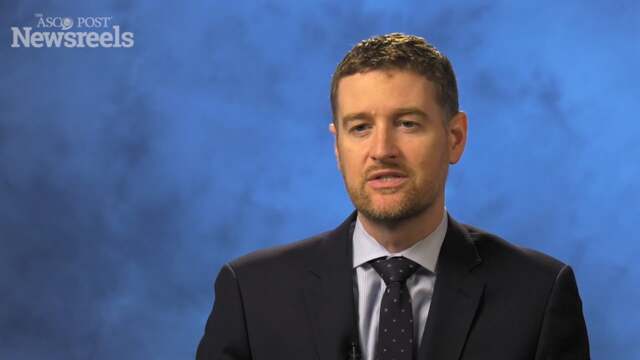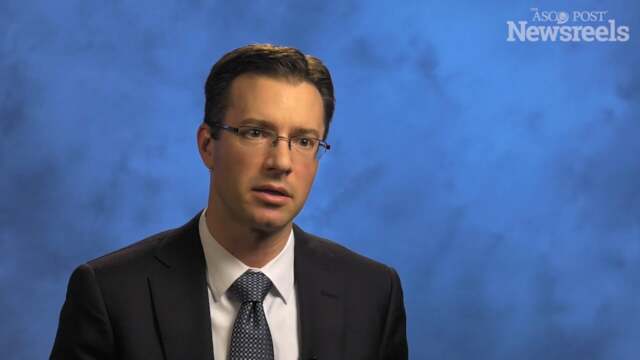Joshua Armenia, PhD, on Prostate Cancer: Recent Discoveries
2017 Genitourinary Cancers Symposium
Joshua Armenia, PhD, of Memorial Sloan Kettering Cancer Center, discusses new information that is changing the understanding of prostate cancer, including the identification of a new subclass, which represents 21% of cases, and the discovery of recurrently mutated cancer pathways not previously implicated in prostate cancer (Abstract 131).
Emma Hall, PhD, of the Institute of Cancer Research, London, discusses long-term outcomes with chemoradiotherapy vs radiotherapy alone, and standard vs reduced high-dose volume radiotherapy in muscle-invasive bladder cancer. (Abstract 280)
Joshua M. Lang, MD, of the University of Wisconsin Carbone Cancer Center, discusses genomic alterations in DNA damage–repair pathways––more common in patients with prostate cancer than previously recognized–– and clinical trials with PARP inhibitors.
Rana R. McKay, MD, of the University of California, San Diego, discusses study findings on PD-1/PD-L1 responders with metastatic renal cell carcinoma who discontinue therapy for immune-related adverse events. (Abstract 467)
W. Marston Linehan, MD, of the National Cancer Institute, discusses the genetic basis of the different types of kidney cancer, which provides the key to clinical management.
Brian C. Allen, MD, of Duke University Medical Center, discusses the benefits of using a computerized process that provides step-wise guidance, decreases interpretation time, and reduces errors when measuring tumor response to treatment. (Abstract 432)





